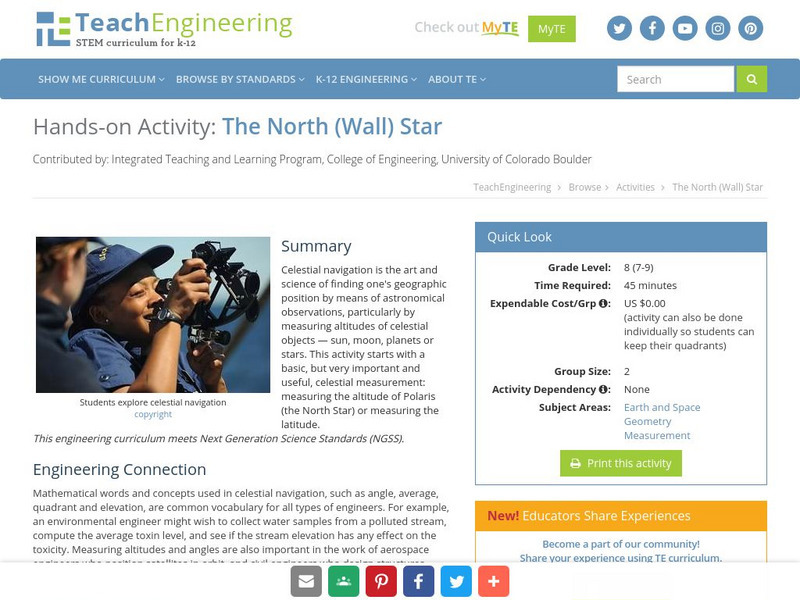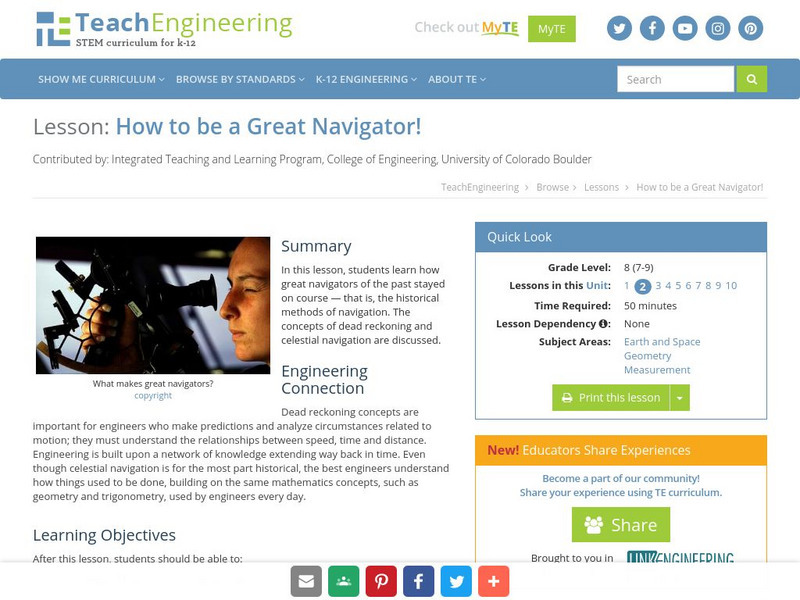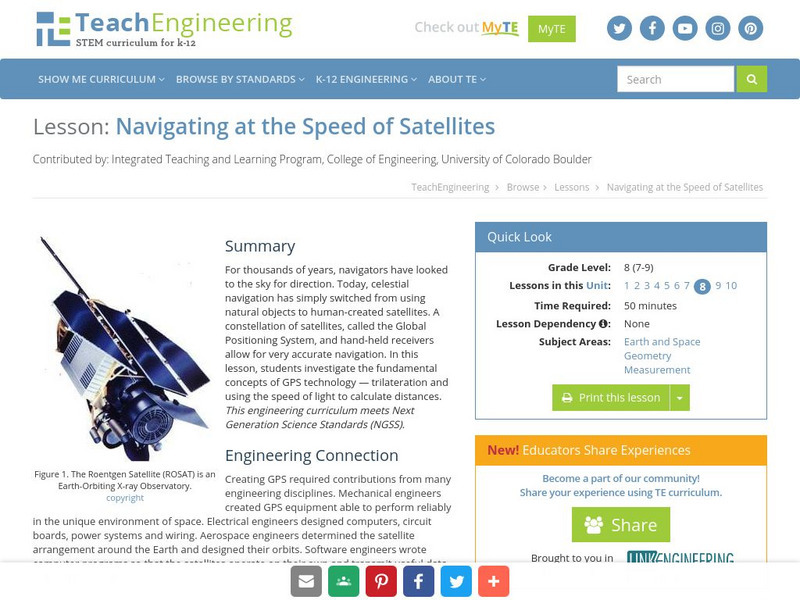Curated OER
How to be a Great Navigator!
Students, through teacher lecture and class discussion, explore historical methods of navigation: dead reckoning and celestial navigation.
NOAA
Noaa: Make Your Own Astrolabe [Pdf]
Create your own astrolabe after reading to find out what one is. Measure heights of objects around you using the astrolabe.
Science Buddies
Science Buddies: Which Stars Can You Use for Navigation
A great science project from Science Buddies that examines how ancient peoples navigated without the benefit of a GPS. Find out which stars are important in navigation in the northern and southern hemispheres. The Science Buddies project...
TeachEngineering
Teach Engineering: The North (Wall) Star
Celestial navigation is the art and science of finding one's geographic position by means of astronomical observations, particularly by measuring altitudes of celestial objects - sun, moon, planets or stars. This activity starts with a...
Other
Sea and Sky: Celestial Objects
Empty space in outer space is not truly empty. Celestial objects fill the space not occupied by planets, stars, and such. This resource identifies these objects and further explains their existence.
Other
Uss Constitution Museum: How to Be a Great Navigator!
In this lesson plan, 7th graders are shown how Great Navigators of the past stayed on course with the historical methods of navigation. The concepts of dead reckoning and celestial navigation are discussed. Using Vector Voyage students...
TeachEngineering
Teach Engineering: How to Be a Great Navigator!
In this lesson, students will learn how great navigators of the past stayed on course - that is, the historical methods of navigation. The concepts of dead reckoning and celestial navigation are discussed.
TeachEngineering
Teach Engineering: Navigating at the Speed of Satellites
For thousands of years, navigators have looked to the sky for direction. Today, celestial navigation has simply switched from using natural objects to human-created satellites. A constellation of satellites, called the Global Positioning...



![Noaa: Make Your Own Astrolabe [Pdf] Activity Noaa: Make Your Own Astrolabe [Pdf] Activity](https://d15y2dacu3jp90.cloudfront.net/images/attachment_defaults/resource/large/FPO-knovation.png)




